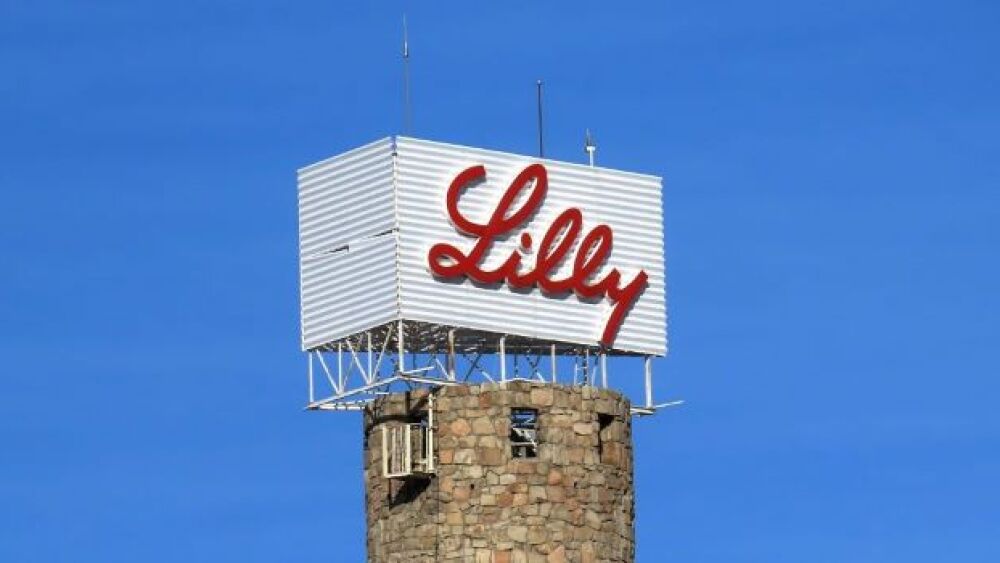Eli Lilly and Company is set to cut 163 jobs as it closes its Dermira facility in Menlo Park and sells off the latter company’s sweat drug Qbrexza, which is being snatched up by Journey Medical.
Cristina Arias/Cover/Getty Images
Eli Lilly and Company is set to cut 163 jobs as it closes its Dermira facility in Menlo Park and sells off the latter company’s sweat drug Qbrexza, which is being snatched up by Journey Medical.
Lilly acquired medical dermatology focused Dermira back in 2020 for $1.1 billion, giving the company rights to its excessive underarm sweating treatment, approved by the U.S. Food and Drug Administration, in addition to an emerging drug pipeline. The acquisition also added lebrikizumab to Lilly’s immunology pipeline. Lebrikizumab was in development for the treatment of moderate-to-severe atopic dermatitis in adolescents and adults.
Approximately 16 months after this acquisition, the company had ditched the majority of the portfolio and cut 150 jobs to get its hands on Genetech’s potential blockbuster drug for atopic dermatitis.
To reach its goal, Lilly is shuttering the Menlo Park Dermira site and selling Qbrexza to Journey Medical. In 2020 alone, Qbrexza generated $24 million in net sales, a likely attractive sum for Arizona-based Journey.
“We are thrilled to expand our footprint in dermatology with the addition of QBREXZA to our growing portfolio of prescription dermatology brands,” said Claude Maraoui, president and chief executive officer of Journey Medical. “Acquiring QBREXZA will allow us to provide an accessible and convenient product to the millions of Americans who seek relief from excessive underarm sweating, many of whom remain undiagnosed and untreated.”
Two key pivotal trials found Qbrexza led to clinically meaningful improvements in measured sweat production, and other clinical trials have established the drug’s safety and efficacy when administered up to 48 weeks.
While Dermira may be losing employees, the acquisition of its excessive sweating treatment may mean Journey will bring over former Dermira employees. While this has been suggested, Journey hasn’t released definitive news on the how many employees will cross over. Jobs that will permanently end at Dermira include that of CEO Andrew Hotchkiss, who joined the organization following Lilly’s acquisition, as well as five vice president jobs, 11 senior manager positions and 75 sales jobs.
Lilly has been increasingly active in finding solutions to dermatologic conditions, particularly atopic dermatitis. In January 2020, Lilly bought monoclonal antibody lebrikizumab to rival Regeneron Pharmaceuticals and Sanofi’s Dupixent, an FDA-approved treatment for moderate-to-severe atopic dermatitis.
“This acquisition provides an opportunity to add a promising Phase 3 immunology compound for atopic dermatitis, while also adding an approved dermatology treatment for primary axillary hyperhidrosis. We look forward to completing the acquisition and continuing Dermira’s excellent work,” according to a statement made by Patrik Jonsson, president of Lilly Bio-Medicines.
In late 2017, Dermira acquired lebrikizumab from Genentech for an upfront payment of $135 million, pledging that it could generate $1.4 billion in development and regulatory milestones.
“We believe atopic dermatitis is one of the greatest unmet needs in dermatology, and lebrikizumab, if successfully developed and approved, could represent a meaningful advancement in the treatment of this disease,” said Dermira’s chairman and CEO, Tom Wiggans, at the time of the acquisition. “The addition of this program to our development portfolio represents an important step toward our goal of building a leading medical dermatology company dedicated to delivering differentiated, new therapies to the millions of patients living with chronic skin conditions.”
Despite Dermira’s new closure and job cuts, recent news shows promise for the development of the company’s preclinical drugs. In January, former Dermira Cofounder and Chief Development Officer Luis Peña, in addition to Cofounder and former Chief Medical Officer Dr. Eugene Bauer and former Research Chief Hans Hofland, said they licensed three of Dermira’s dermatology drugs under the company Evommune.
“These three promising investigational programs expand Evommune’s pipeline and position us for long-term growth as a research and development company,” said Peña, Evommune’s CEO, in a statement. “As our leadership team was pivotal in the original development of these compounds at Dermira, we are thrilled to have the opportunity to continue their development and potentially help the many patients living with these debilitating diseases who are in dire need of new treatment options to improve their quality of life.”





